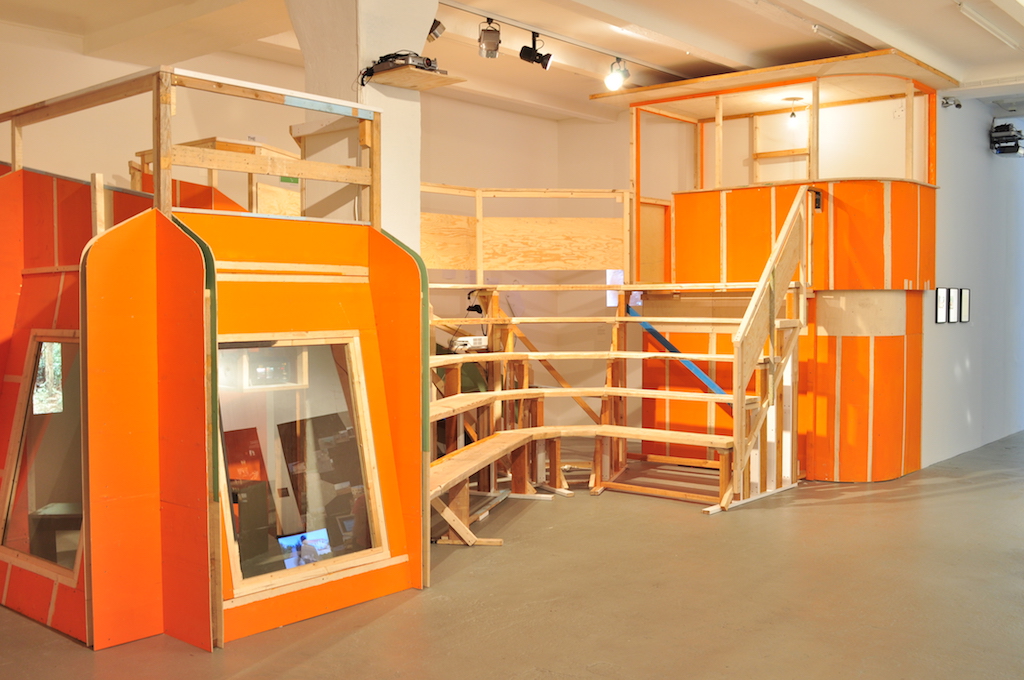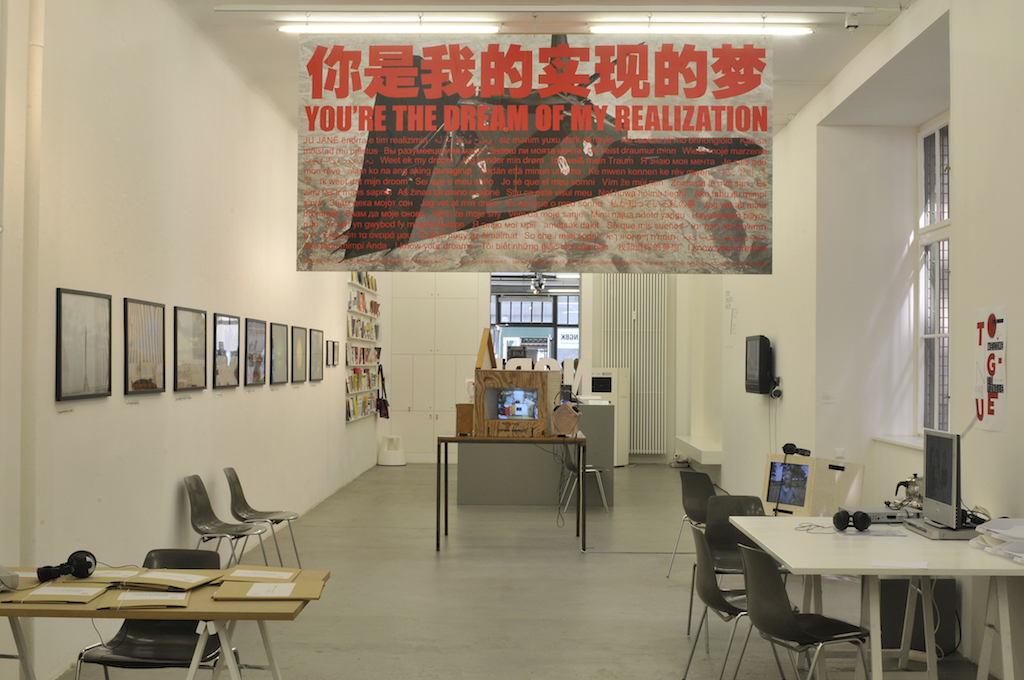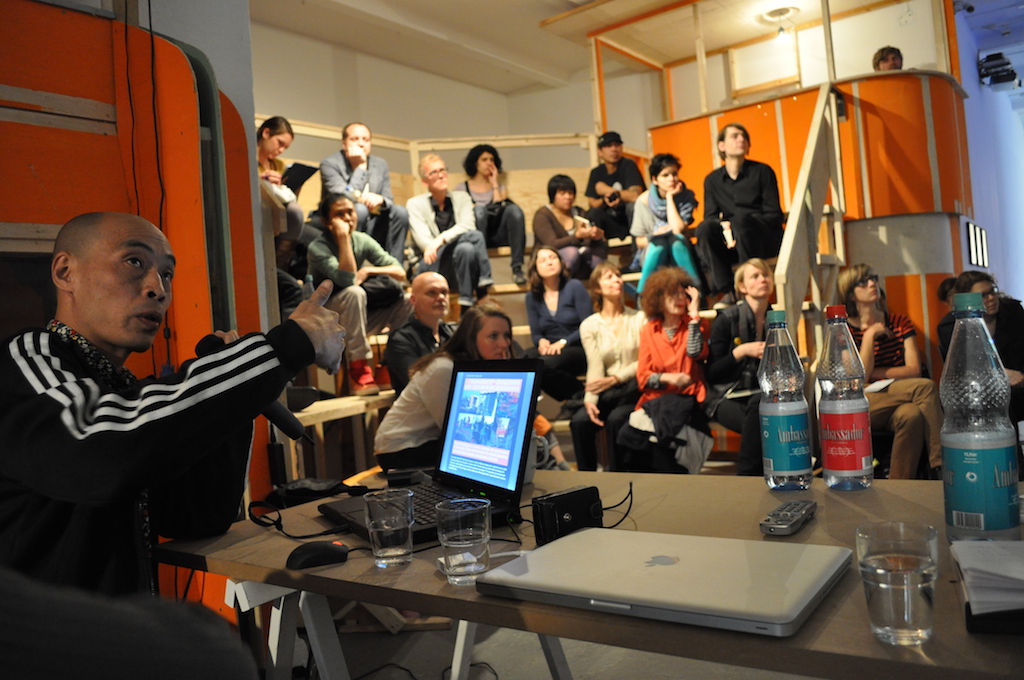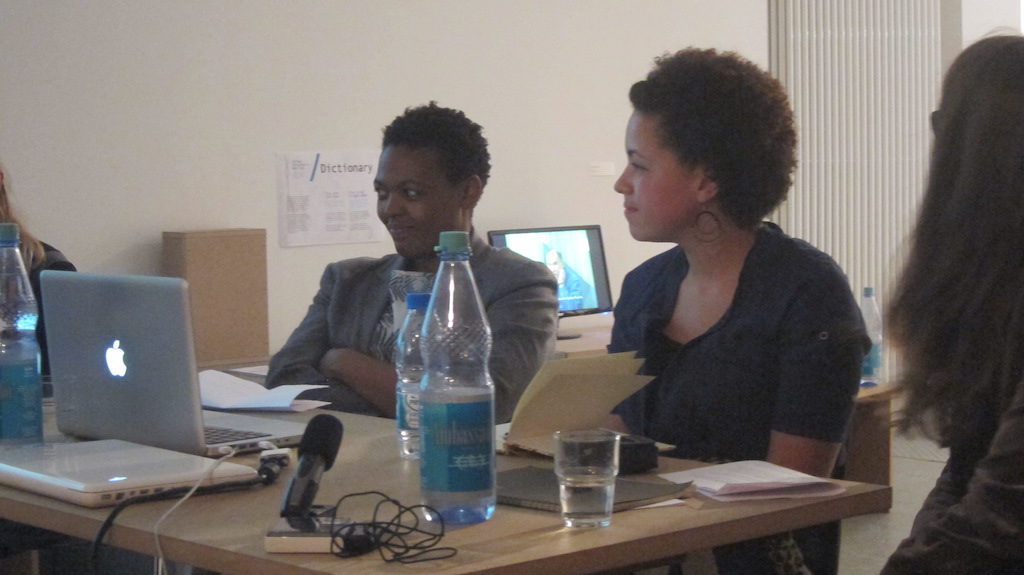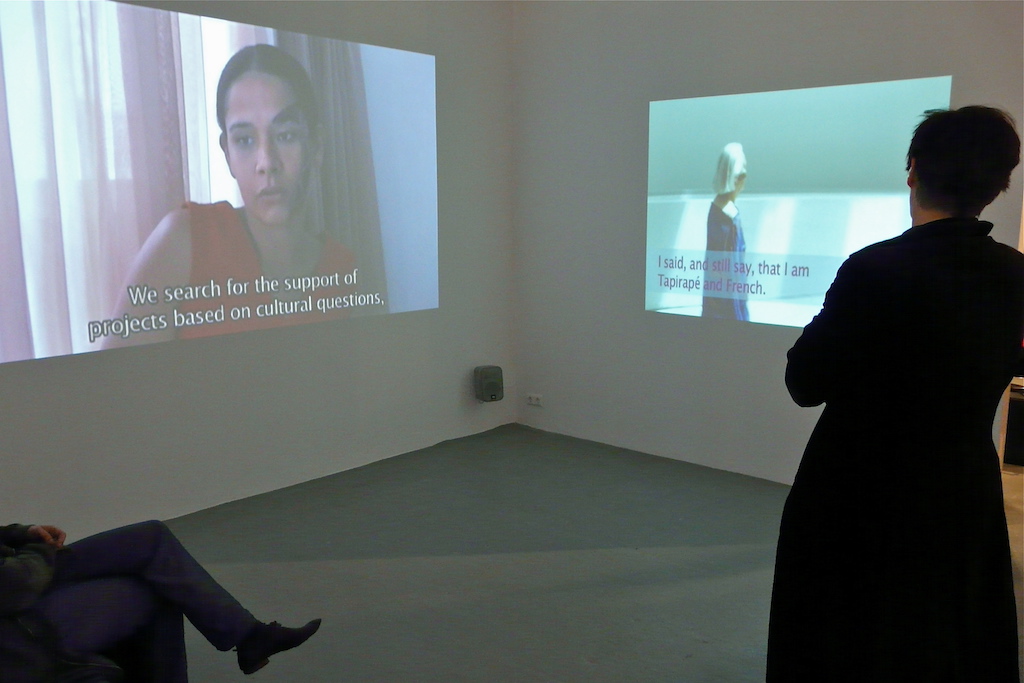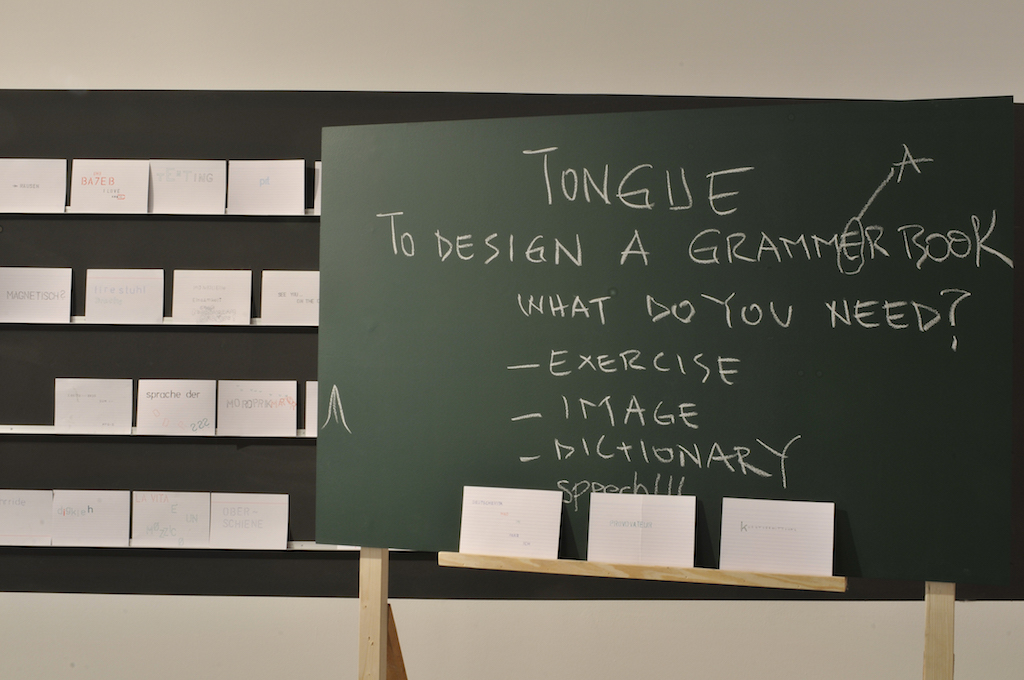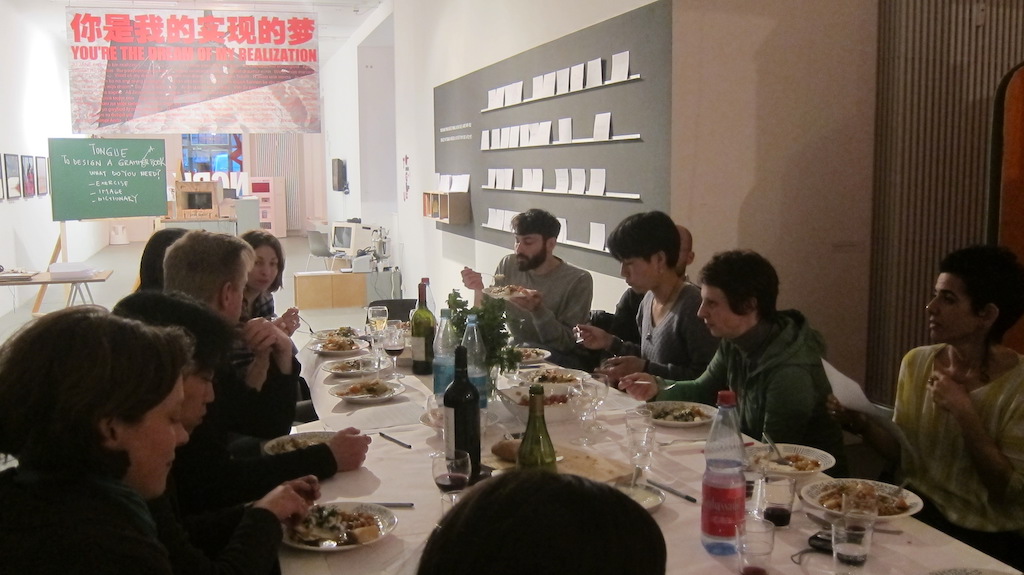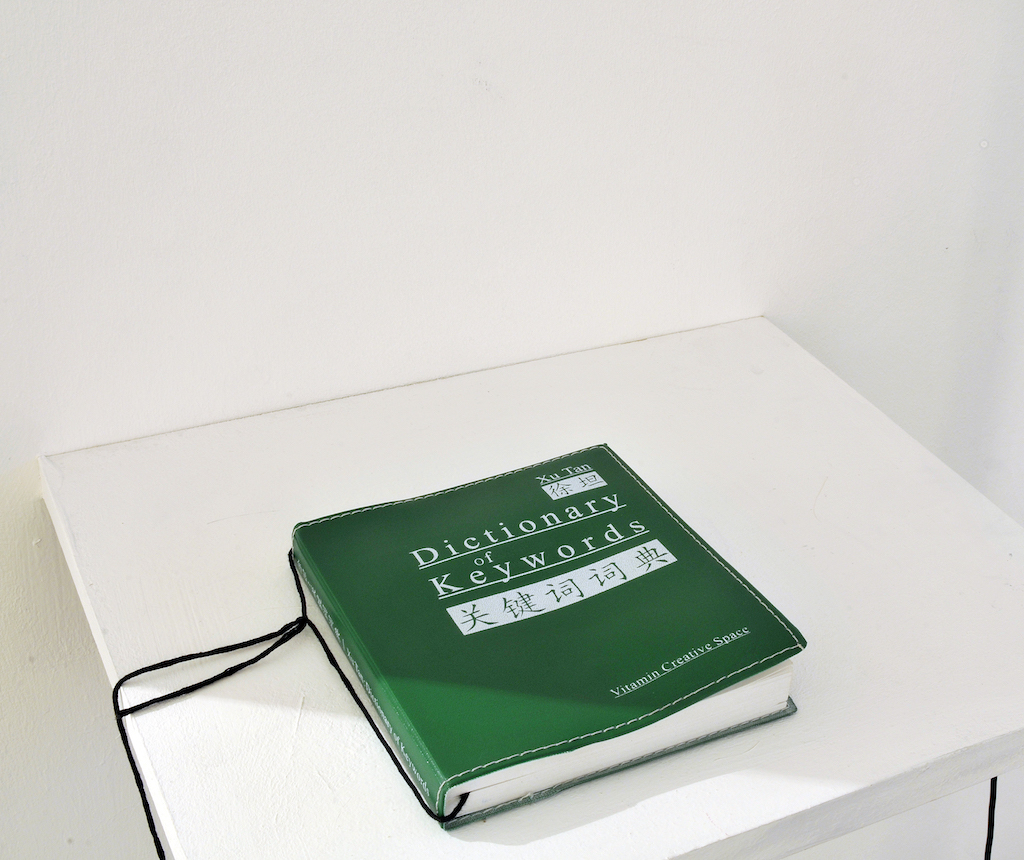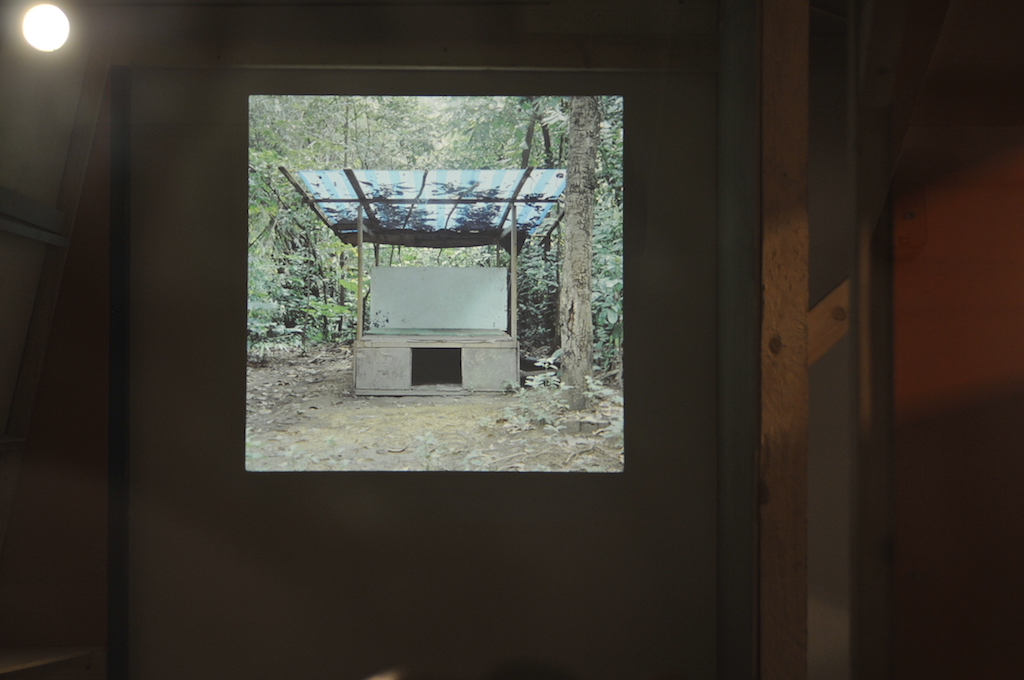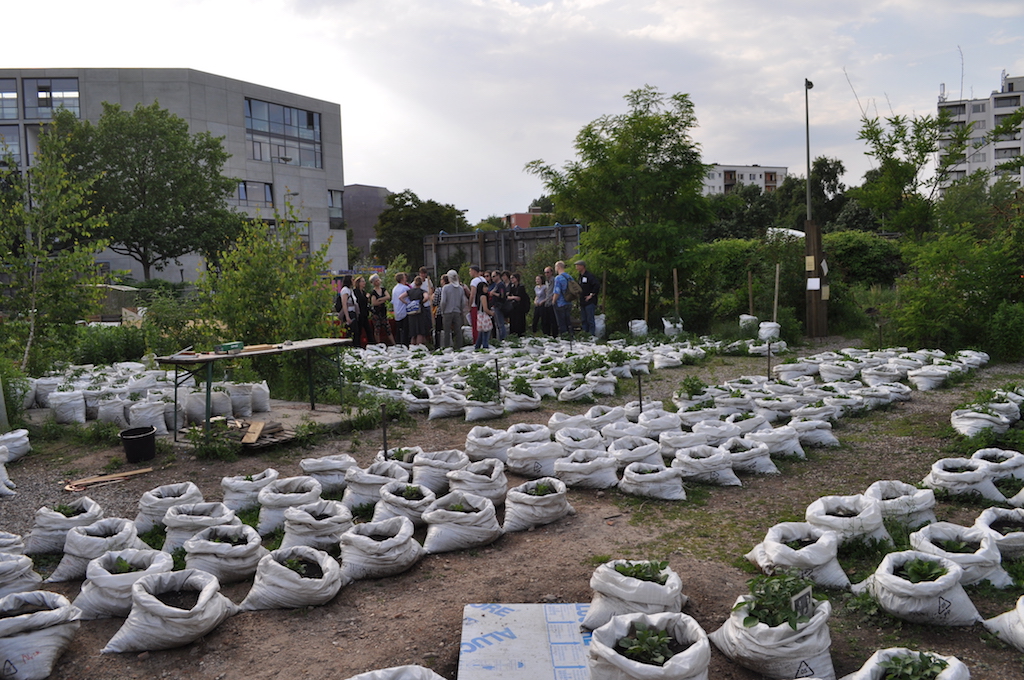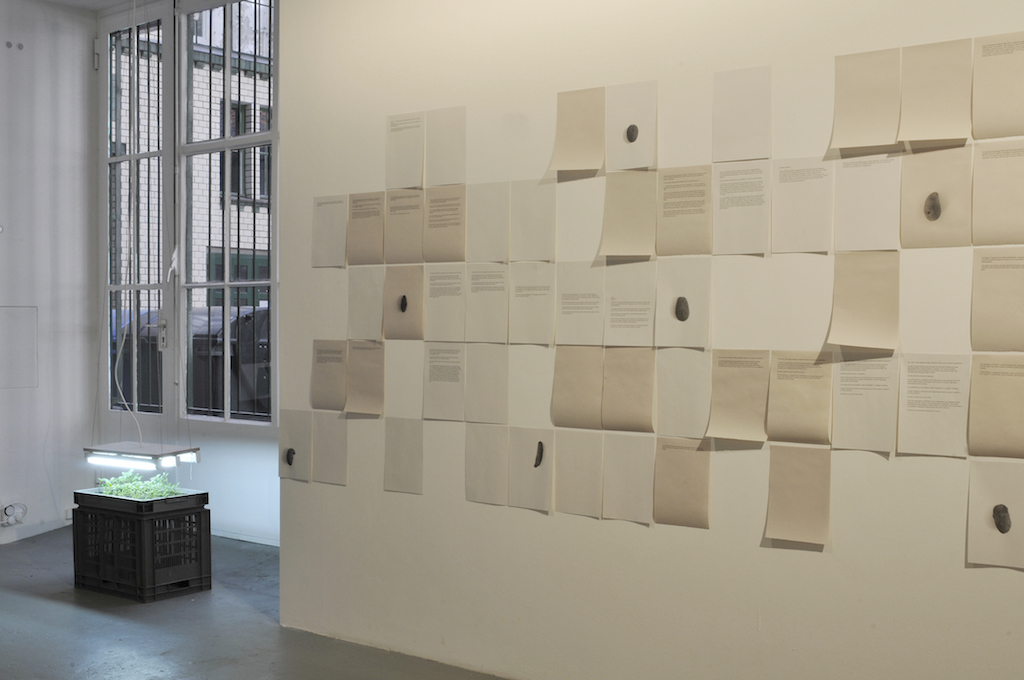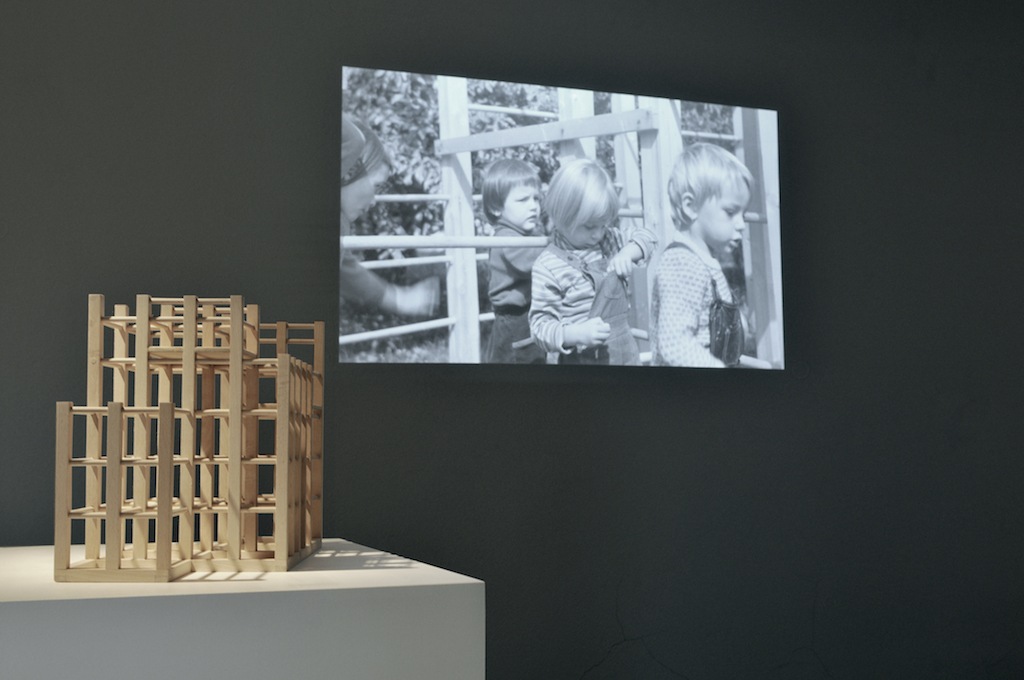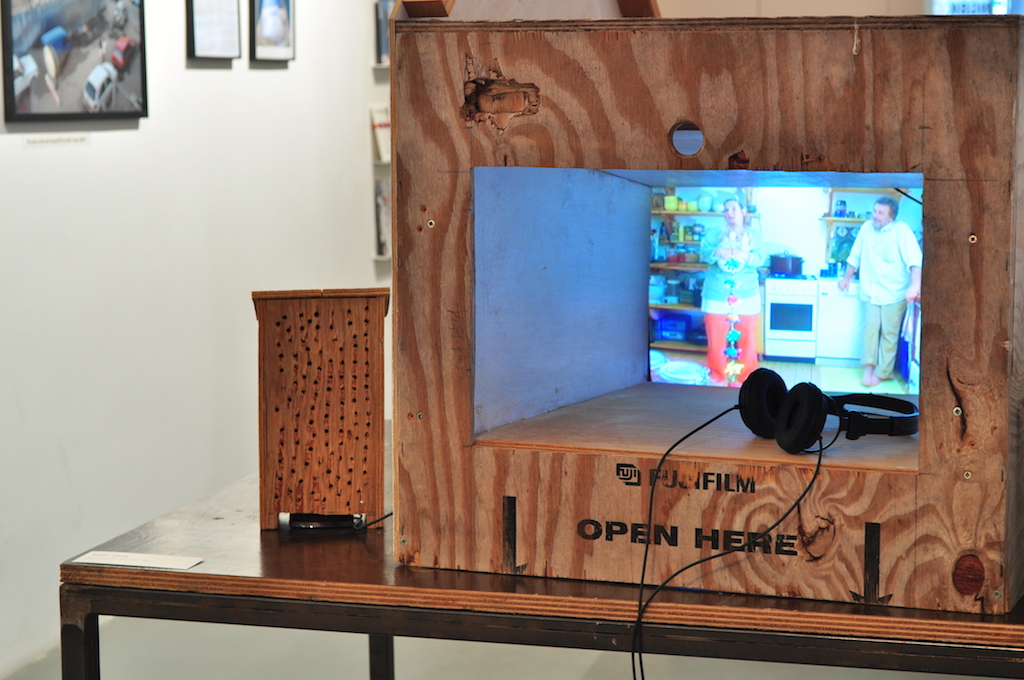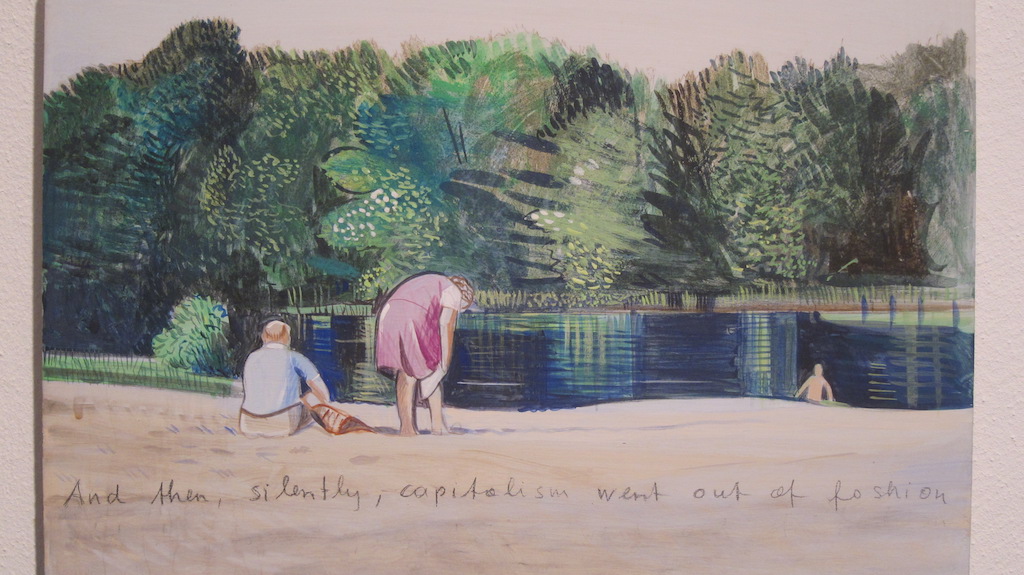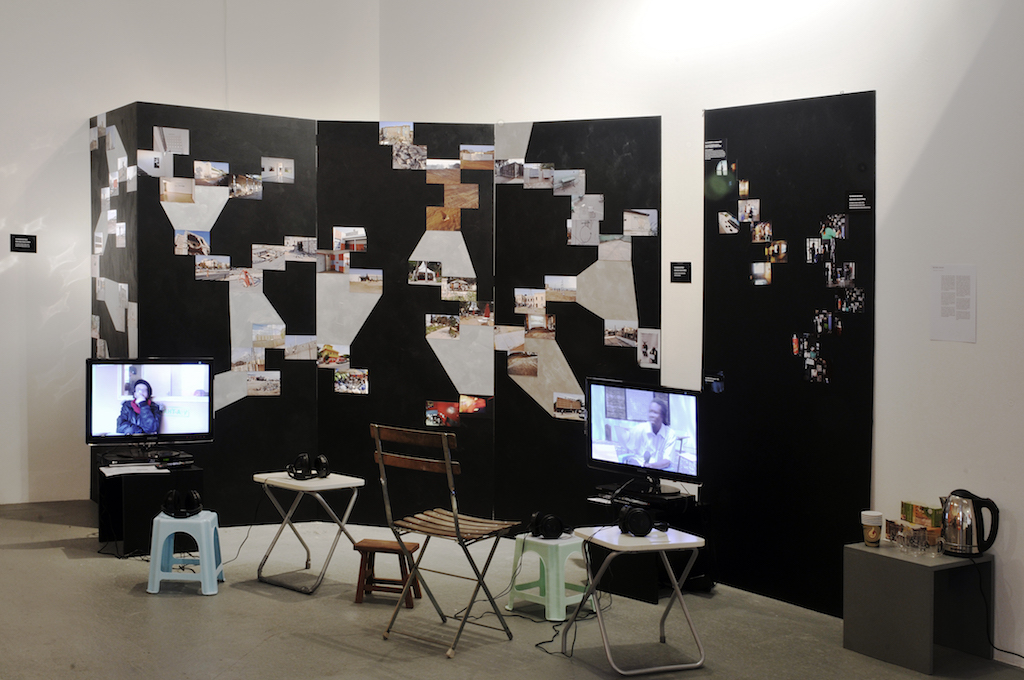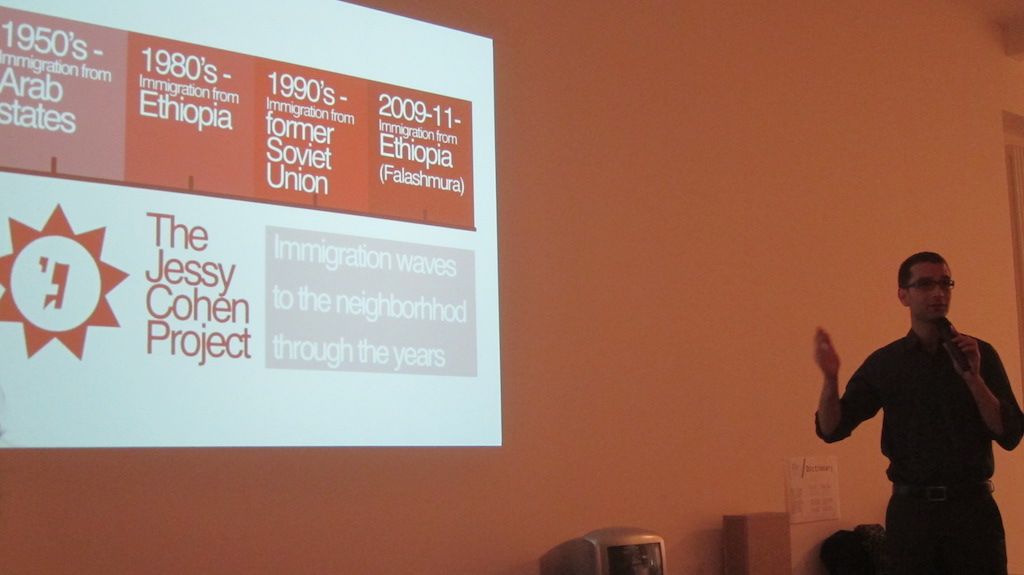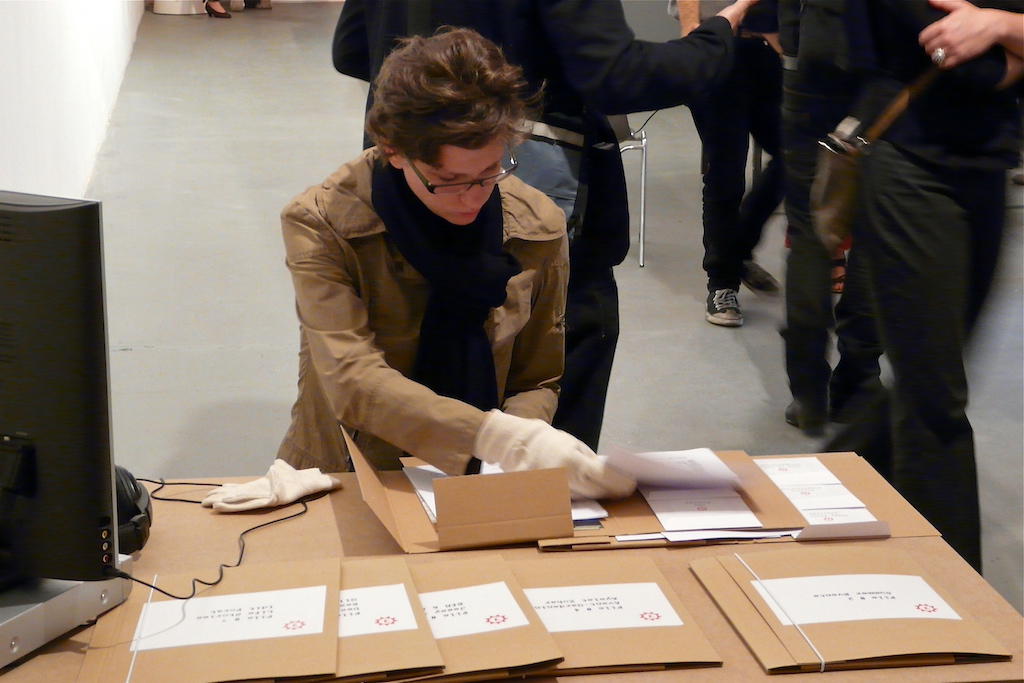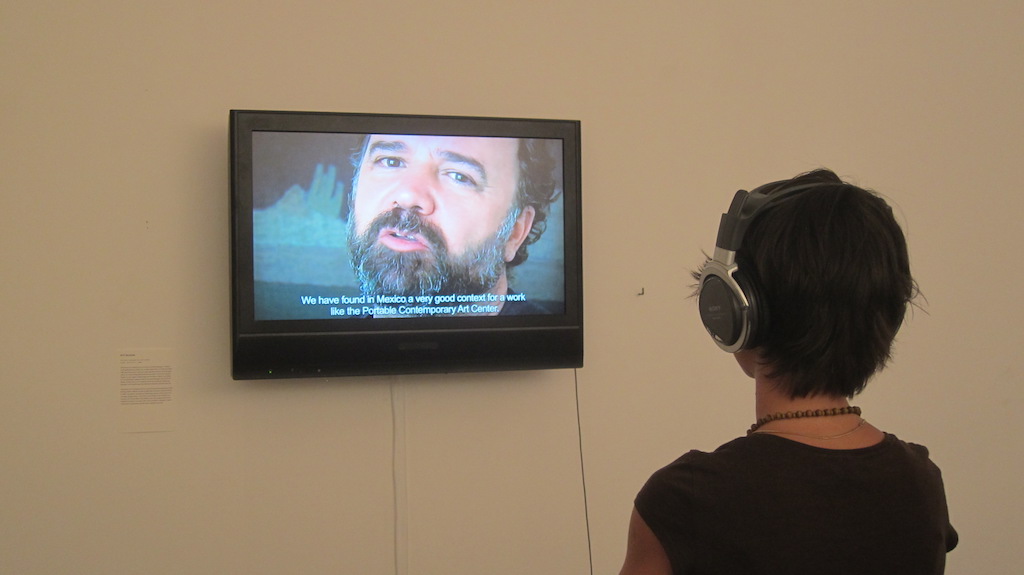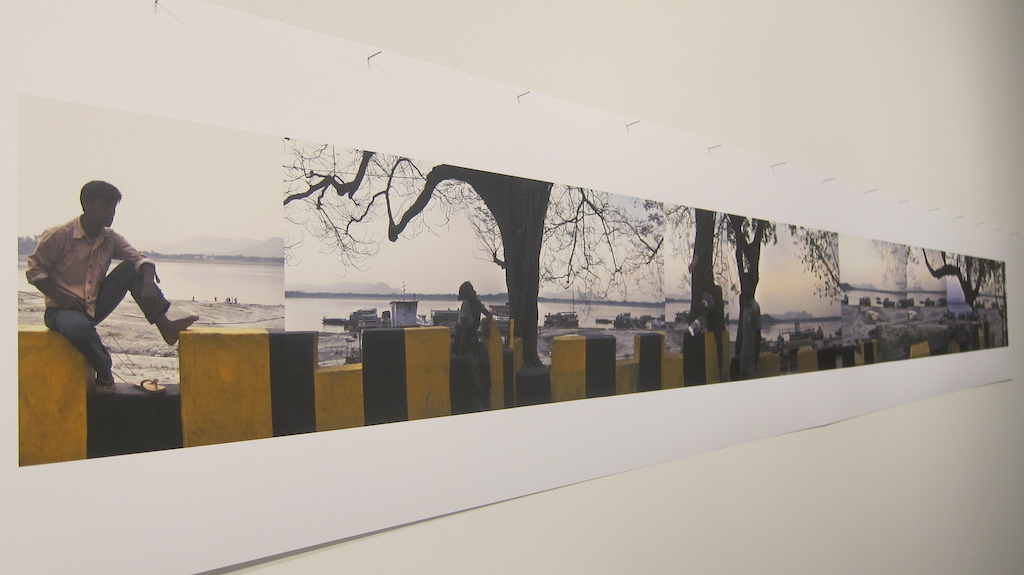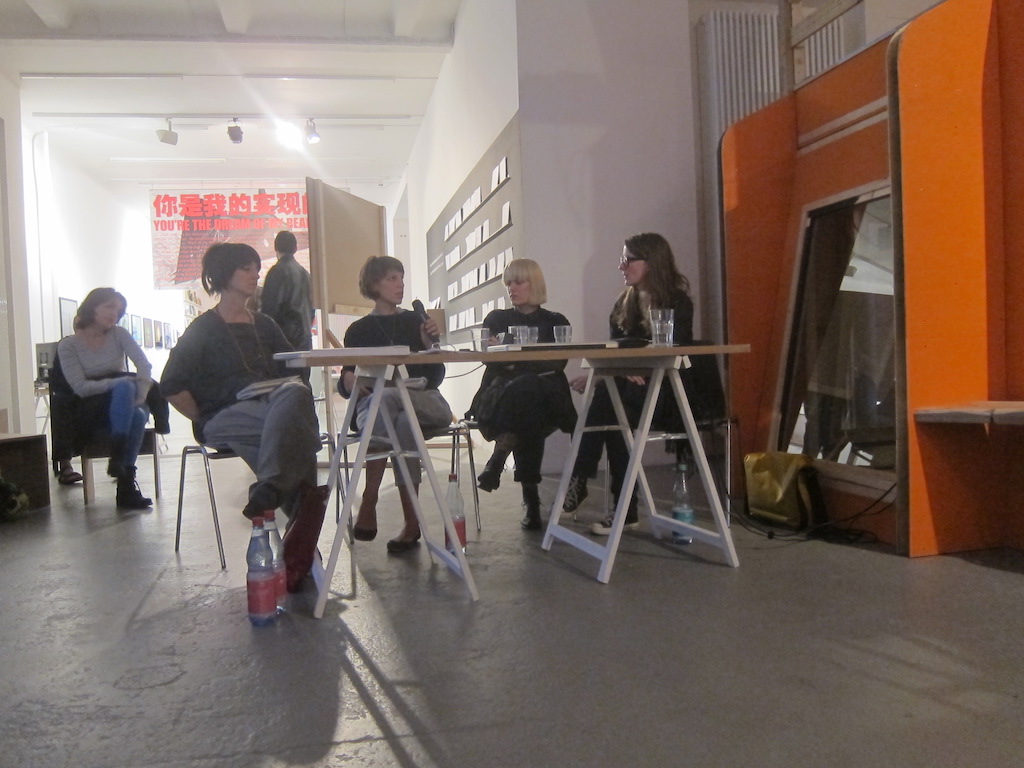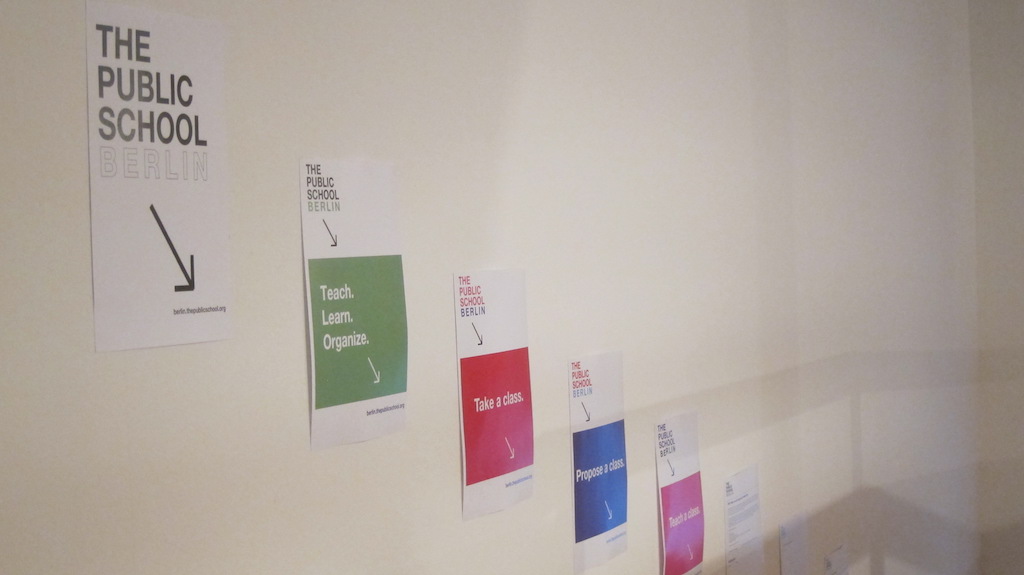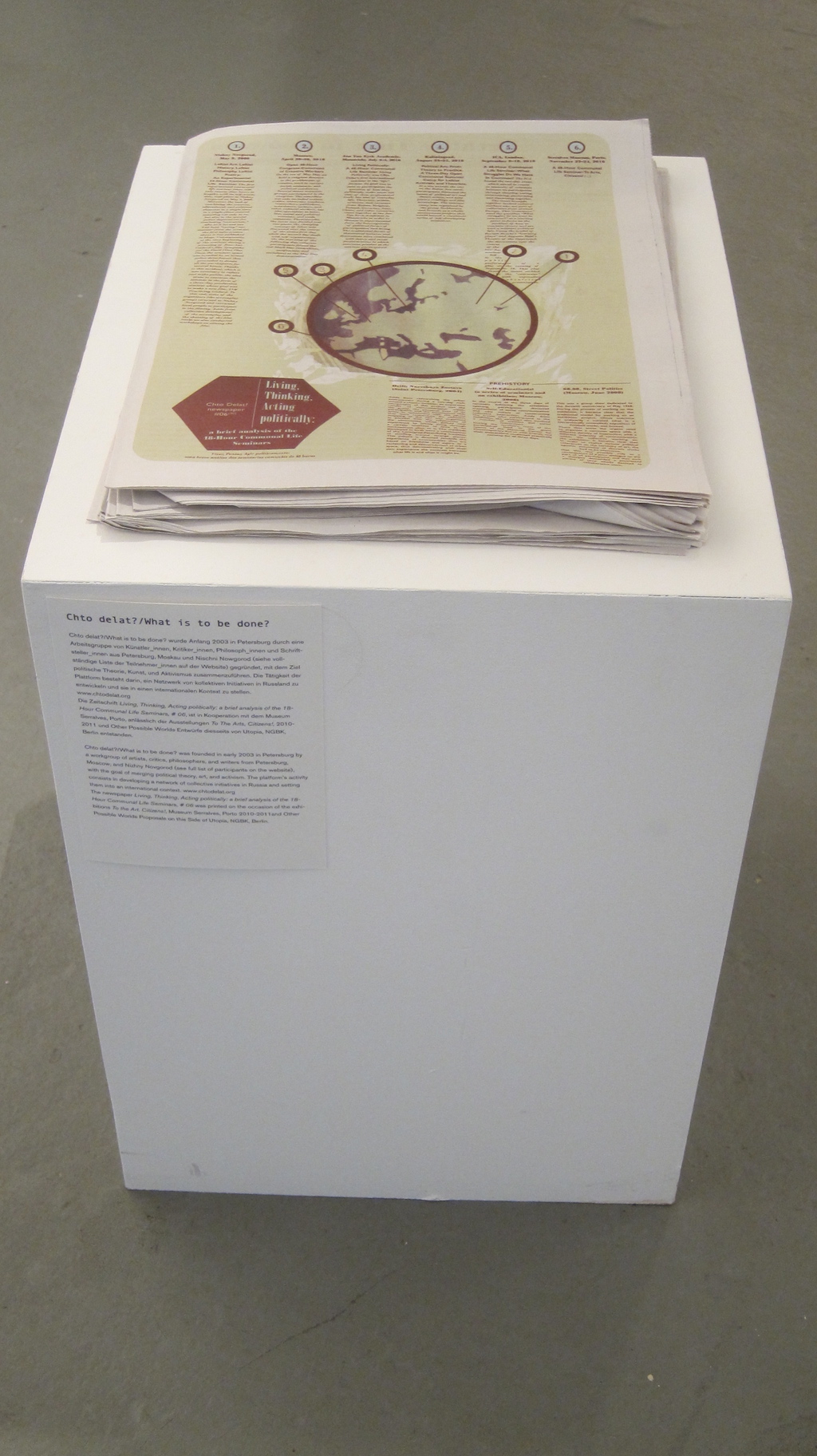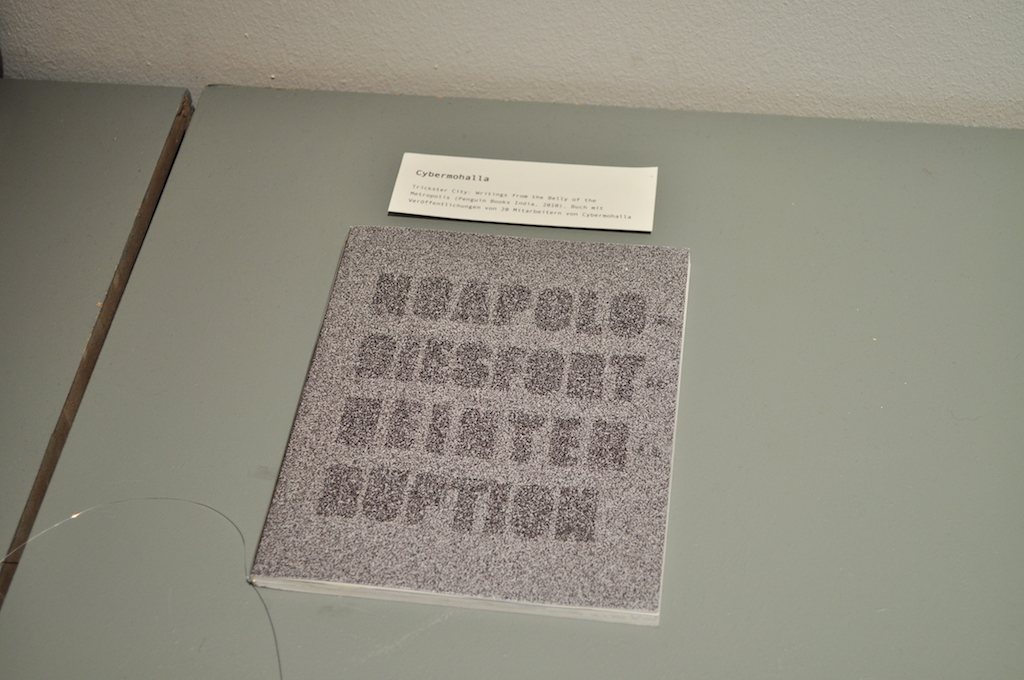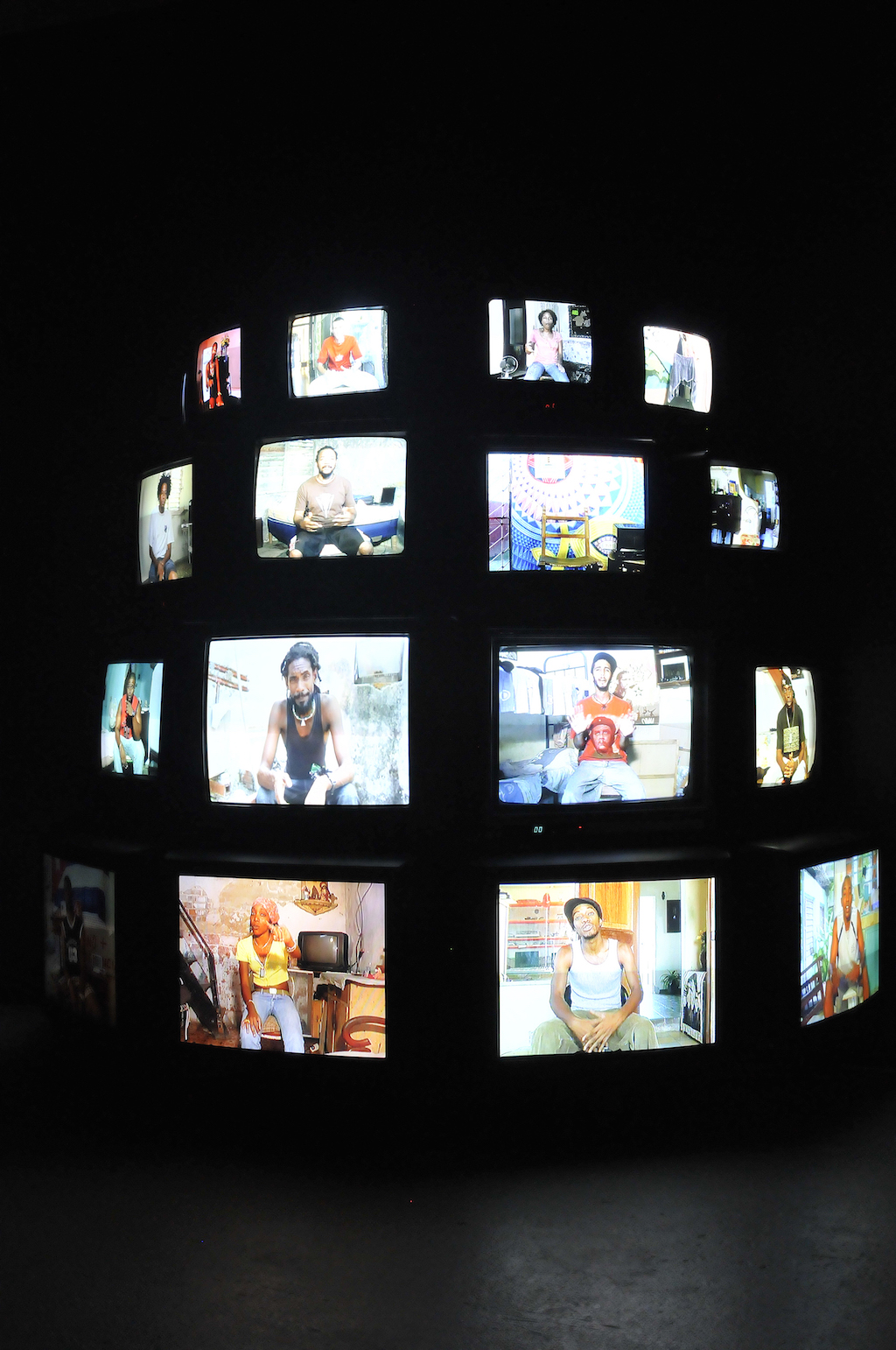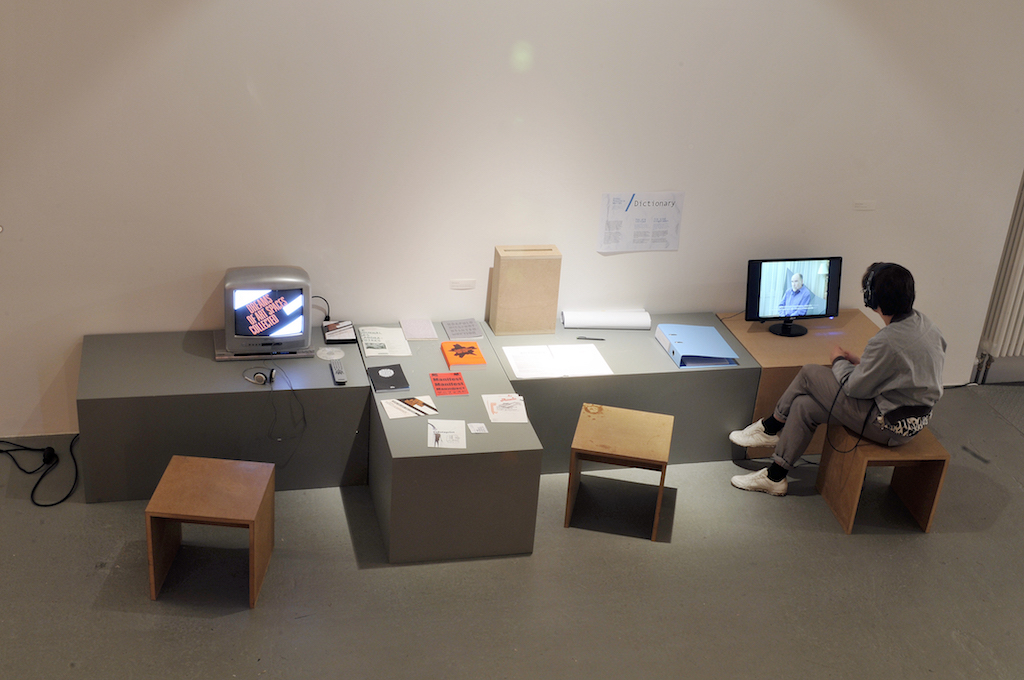Curatorial Team: Dorothee Albrecht, Berit Fischer, Franziska Lesák, Hubert Lobnig, Moira Zoitl
30.4.2011 – 13.6.2011
nGbK (Neue Gesellschaft für Bildende Kunst e.V.)
Oranienstraße 25, D-10999 Berlinw
Contributions by: Dorothee Albrecht, Antimuseum, Maria Thereza Alves, Cedric Bomford, CCA Lagos, Leung Chi Wo, Chto delat?, Chua Chye Teck , Cybermohalla, Kiluanji Kia Henda, ExRotaprint, Huang Xiaopeng, Johanna Kandl, Hubert Lobnig, Ralo Mayer, Gabi Ngcobo, Periferry, Oda Projesi and Nadin Reschke, Åsa Sonjasdotter, The International Academy of Art Palestine, The Israeli Center for Digital Art, TkH (Walking Theory), The Public School, Yoel Diaz Vazquez, Xu Tan, Moira Zoitl
Which roles can art projects, art spaces, self-organized academies and labs play in developing conceptions of the world that go beyond purely economic globalization? Projects from various parts of the world are invited to propose and test out other realities of life and world views, from small artistic attempts to social experimentation. Topics such as dealing with cultural differences, economic and ecological changes, processes of levelling out and confusing complexities form the basis for a common space in which to rise questions.
The basis for Other Possible Worlds – Proposals on this Side of Utopia is a collection of ideas, concepts, models, terms, projects, kits and modes of acting. It is conceived as a pool for further projects in other parts of the world, it is open to further extension and it allows for varied formats. The NGBK is considered as a common and active space of inquiry for different formats like artistic contributions and installations, workshops, presentations, talks and video screenings.
With a Publication (English & German), published by argobooks.
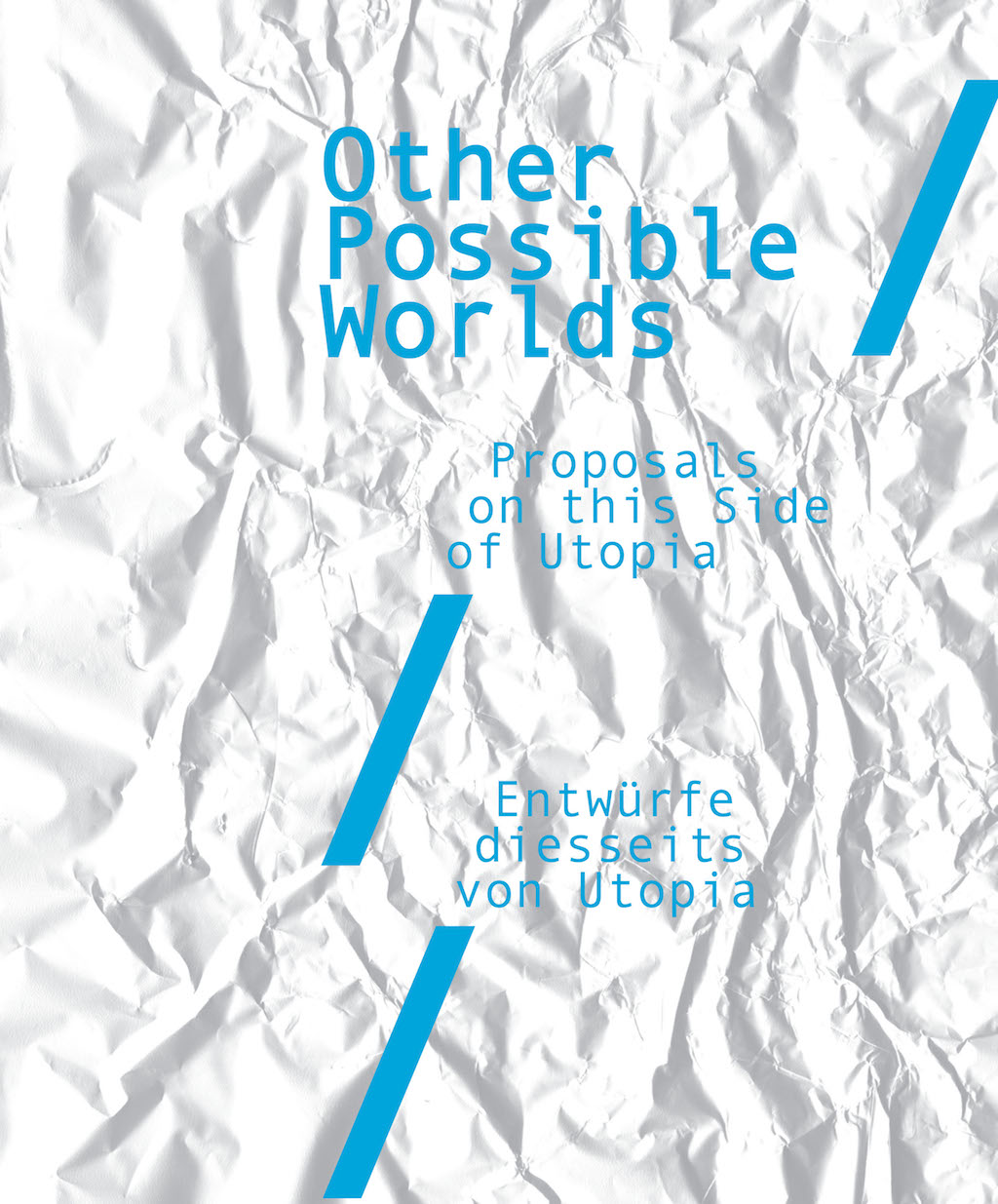
Including further contributions by: Berit Fischer, Franziska Lesák / Ricarda Denzer, Sarat Maharaj / Gilane Tawadros, Kerstin Meyer.
200 Pages. www.argobooks.de ISBN 978-3-9427-00-21-4
PREFACE:
by: Dorothee Albrecht, Berit Fischer, Franziska Lesák, Hubert Lobnig, Moira Zoitl
“Another world is possible” was a slogan of the World Social Forum, a conference that brought together economic projects countering those put forth at the World Economic Forum. [1] ‘Other Possible Worlds—Proposals on this Side of Utopia’ aims at opening a space for multiple projects suggesting and testing other realities of life—from small-scale artistic tryouts to larger social experiments. While a wide range of exhibitions and publications are currently concerned with accounting for failed societal models, we pursue clearly defined drafts and examples that are, in fact, about to be realized or that are potent possibilities for artistic visualizations.
The relational frame of the “common globe” seems to be crucial as a potential common denominator connecting the most diverse initiatives. This relational frame is also described by Jeremy Rifkin who contributed and gave a new direction in the debates on globalization with terms like “empathy” and “The Race to Global Consciousness.” [2]
Positioning our investigations in the art context is based on an extended conception of art, respectively the potentiality of art, described by Sarat Maharaj: art that doesn’t only mean transferring prefabricated knowledge that is established in the institutional discourse of systematic disciplines, but as art as producer of knowledge that normal reasoning cannot handle. “What we call art activity is expanding, extending, transmogrifying in the global contemporary setting. Hence also my dogged interest in Duchamp’s question ‘How to make a work of art that isn’t a work of Art?’ For me, it’s a marker for ways we might be able to engage with works, events, spasms, ructions that don’t look like art and don’t count as art, but are somehow electric, energy nodes, attractors, transmitters, conductors of new thinking, new subjectivity and action that visual artwork in the traditional sense is not able to articulate.” [3]
While examining theoretical terminologies such as “utopia,” “heterotopia,” “atopia,” “other spaces,” “rhizome,” “alter modernism” and “alter globalization” as terms that reflect upon new conceptions of space and orders of the world, we explore the world of thoughts that the invited projects are based upon.
‘Other Possible Worlds—Proposals on this Side of Utopia’ debates the question of what role art spaces can play in developing conceptions of the world beyond the sheer dynamics of economic globalization. At the same time, self-organized art spaces are being created throughout most parts of the world. Beyond their function as pure exhibition spaces, they are used as test sites and experimental staging areas for specific and marginal knowledge that questions hegemonic perspectives. They develop methods and channels that go outside the Cartesian coordinate system; they admit gray areas and uncertainties, and connect theoretical, visual and practical knowledge.
In contexts that are defined by a tense political situation, for example Palestine, art spaces become political per se. They provide a scope that can be of immediate social relevance. Art spaces offer the potential for constant redefinition. Newly developed contacts, expanded fields of reference, exchange projects, blogs and communication by email give rise to decentralized networks that undermine the outdated dominance of the West. While a proliferation of centers occurs around the globe, large numbers of contributors to these processes of exchange produce communal spaces encompassing continents. Issues of universal urgency, such as climate change and the negotiation of cultural differences, global leveling and confusion, initiate such exchanges.
Similarly, self-organized academies and labs develop and manifest tactics of knowledge production outside an institutionalized consensus. They are aiming for a counter-economy of education systems. Methods of self-organized academies and labs are for the most part process oriented, participatory, emancipatory and collective. Between visual arts, knowledge production and political activism, fields of action open spaces for a critical contesting of social realities. Public space is translated into a space for reflection and the challenging of hegemonic structures.
Furthermore, ‘Other Possible Worlds—Proposals on this Side of Utopia’ assembles artistic works and materials concerned with historical and contemporary social models of cohabitation and resulting novel forms of living and working together. From an historical viewpoint, alternative structures emerged, such as the formation of communes, “Kinderläden,” squatting of houses and factories, architectonic experiments or retreats to rural areas.
As the basis for ‘Other Possible Worlds–Proposals on this Side of Utopia’, we collect ideas, concepts, models, terms, projects, kits and modes of acting. In this way, we collate a pool for further projects and exhibitions in other parts of the world that is open to further extension. This resource will be available online and also on site at the exhibition space.
On the one hand, the translation of the project into a space connects different elements including artistic installations, workshops, talks, discussions and video screenings that are all contained within a common space of inquiry. The exhibition space is converted into an experimental field and a test area. On the other hand, an online format will bring together an ongoing collection in the format of a “Dictionary,” as a kind of a cosmos of terminologies and references that attempts to reconfigure and question existing structures and orders.
The publication takes up the idea of this open collection and compiles contributions of authors, artists, collectives and institutions into a sort of “workbook.” The varieties of conceptual and practical approaches of the contributions are underlined by the variety of text formats, i.e. the format of a newsletter as a productive medium for ideas and activities of an institution (such as CCA Lagos), along with essays and artists texts, timelines on the genesis of a project (The Public School, Chto delat?), and collections of terms that are reminiscent of visual poetry (Periferry).
‘Other Possible Worlds—Proposals on this Side of Utopia’ is understood as an experiment and is conceived as a process-oriented project. It will be inaugurated at the exhibition space of NGBK, Berlin. [4]
A following station thereafter, will be the two-week long ‘Art Workshop 2011′ at Casino Luxembourg-Forum d’art contemporain in Luxembourg, for which we invited eleven artists from different parts of the world to continue and further develop the ideas of ‘Other Possible Worlds—Proposals on this Side of Utopia’, and which will be made productive as a “dictionary in space.”
We are curious where the project will go on!
The project is extended further with an ongoing and digital dictionary.
The OTHER POSSIBLE WORLDS – PROPOSALSON THIS SIDE OF UTOPIA DICTIONARY is understood as a cosmos of terminologies and fields of references. The collection aims to link diverse art practices, ideas, concepts, models, terms, projects, kits and modes of acting into a “Dictionary”, that strives to re-think existing structures and to develop other ways of creating orders.
The project is further activated through a WEEKLY PROGRAMME:
Saturday 30.04.2011, 15:00 h
Huang Xiaopeng / Leung Chi Wo, presentation and talk
H
Huang Xiaopeng unpacks his recent project You are the Dream of my Realization (since 2006) and speaks about the changing process of modernization in China, about social values, the education system, westernized language and individuality.
Huang Xiaopeng is currently an Associate Professor and head of the 5th studio (contemporary art practice) in Guangzhou Academy of Fine Art, China. His work explores inevitable dislocations as a consequence of translating, copying and transforming, analyses the politics in the relationship between language and technology.
Sound file
OPW Talk Huang Xiaopeng
Leung Chi Wo Para/Site Art Space was founded 1996 by seven artists in Hong Kong. As a co-founder, Leung Chi Wo decided 2007 to quit this art space and turned his role into an observer, collaborator and supporter. In 2008, he was commissioned by Para/Site to make a research trip and an artistic journey to various art organizations in ten cities in Asia which was concluded as a photo series Work Space and an exhibition titled Asia Art Knots looking at the nature and the network of art spaces.
www.para-site.org.hk
Sound file
OPW Talk Leung Chi Wo
Wednesday 04.05.2011, 19:00 h
Oda Projesi + Nadin Reschke, Tongue Dinner
Number of participants is limited, Reservations under: office@ngbk.de
Oda Projesi and Nadin Reschke are working on a grammar book of their latest project Tongue. They invite you for a dinner at the NGBK to think about the latest language campaign of the German government: “Raus mit der Sprache – Rein ins Leben” and its
effects on language diversity in Germany. The collected materials and discussed opinions will go into one chapter of the Tongue book, the artists are working on as part of the exhibition.
http://tonguesprachkurse.blogspot.com
Thursday 05.05.2011, 19:00 h
The Israeli Centre for Digital Art: Ran Kasmy Ilan, The Jessy Cohen Project, presentation and talk
The Jessy Cohen Project The Israeli Center for Digital Art consistently questions the place of art institutions within their society and devotes a significant part of its work on art projects that foster discourse about identity, ethnicity, nationalism and cultural exchange. The municipality of Holon invited them to operate in the Jessy Cohen neighborhood. They explored how art and a public art institute can play a significant part in municipal processes, as well as the roles and responsibilities of art vis-à-vis its local context, be it neighborhood, city or the general society. www.digitalartlab.org.il
Sound file
OPW Talk Ran Kasmy Ilan Israeli Centre for Digital Art
Saturday 14.05.2011, 19:00 h
The Public School / TKH (Walking Theory): Marta Popivoda, presentation and talk
22h
Hubert Lobnig, videoscreening
The Public School is a school with no curriculum. It is not accredited and does not assign academic degrees. It provides a framework that supports auto-didactic activities, assuming that every- thing is in everything. The Public School was initiated in Los Angeles in 2007 as a project for Telic Arts Exchange, and exists in eight cities worldwide since. The Public School Berlin opened in fall 2010. http://berlin.thepublicschool.org
Sound file
+OPW Talk The Public School
TkH (Walking Theory), Marta Popivoda – Performing Theoretical Activism, case study: collective self-education
This talk will present some insights and methodologies developed through the work of Walking Theory as an independent, self-organised and non-academic platform within which collectives of artists and theorists perform theoretical activism. From TkH’s viewpoint, theoretical activism relates to reflective, critical and experimental interventions in a specific context—in the field of art, intellectual community, cultural and social reality—and in an opposition with neutral, totalizing and market-oriented academic knowledge. www.tkh-generator.net
Sound file
OPW Talk TkH Walking Theory
In his filmscreening, Hubert Lobnig brings together personal perspectives on projects that are dealing with alternative movements of the 1970`s and 1980´s. Lobnig examines their formal aspects, and takes in consideration the different ways of documentation of such tendencies as well as their history and progress.
Filme / Films: lost spaces, (AT) 2007, Martin Music. Fluc_ fluctuated rooms am Praterstern, (AT) 2009, Armin Faymann, La Mancha, (AT) 2001/2002, Barbara Musil, Karolina Szmit. Mr. Sucha´s Garden, (Sansibar) 2001/2003, Hubert Lobnig.
Thursday 19.05.2011, 19:00 h
ExRotaprint: Daniela Brahm & Les Schliesser
Periferry: Sonal Jain, presentation and talk
ExRotaprint, based on the former site of the Rotaprint printing press manufacturer in Berlin Wedding is conceived as a „social plastic“, as a special model of property ownership and self-organisation. It operates as a space of potentiality for a heterogeneous mix of work, art and community. Daniela Brahm and Les Schliesser, artists and initiators of ExRotaprint, will talk about the conditions and goals of their model for a open non for profit urban planning. Today the project acts between artistic discourse, urban development and concrete realisation. www.exrotaprint.de
Sound file
OPW Talk Exrotaprint
Periferry Sonal Jain, artist and co-founder of Periferry (Guwhati, India), will introduce the project as a nomadic space for hybrid practices that are housed on a ferry: A look at space as a medium in art practice and as an evolving concept. In a state of disuse, spaces become liminal and inter-terrestrial allowing for new interpretations; this leads to what Foucault calls „heterotopias“, the ship as the ultimate „heterotopias“, the fragment of space that contests or compensates for the spaces we usually live in. www.periferry.in
Sound file
OPW Talk Periferry
Thursday 26.05.2011
15:00 h Prinzessinnengarten, Gardening
17:00 h Åsa Sonjasdotter + Matze Wilkens, presentation and talk
Prinzessinnengarten, Prinzenstraße 35, 10969 Berlin (in case of bad weather at NGBK)
With the potato-breeding project at Prinzessinnengarden the artist Åsa Sonjasdotter and gardener Matze Wilkens try out different methods of breeding in order to learn more about this subtle relation between humans and plants. Breeding is an area of knowledge that during the last century has developed into a high tech knowledge system involving the question of intellectual property and genetic engineering. The aim is to develop new, surprisingly beautiful and tasty varieties as well as new relations to breeding.
www.potatoperspective.org/
Sound file
OPW Talk Âsa Sonjasdotter with Matze Wilkens
Thursday 09.06.2011, 19:00 h
Gabi Ncgobo / CCA Lagos: Loren Hansi Momodu, presentation and talk
Gabi Ngcobo is an independent curator, educator and artist. Recently she co-founded the Johannesburg based Center for Historical Reenactments (CHR) an independent platform which creates projects that use art to investigate the relations between art and history; how art can affect, alter or comment upon how we receive and view history and suggest different historical readings that help in the formation of new subjectivities? Ngcobo will unpack CHR projects and their relevance within the context of Johannesburg and South Africa.
Sound file
OPW Talk Gabi Ncgobo
CCA Lagos: Loren Hansi Momodu, Alternative realities, imaged Communities and Contemporary Art in Africa. In an era in which our idea of community has become bound increasingly with the idea of the nation state, contemporary artists have been reflecting, rebeling against and re-creating that idea. Taking the nation state of Nigeria as a starting point Momodu’s aim here is to further consider the prevalence of imagined communities in contemporary art practice in Africa and beyond. The works presented will each offer a view of an alternative reality, which questions the status quo, expounding new ways of seeing the world
we live in. www.ccalagos.org
Sound file
OPW Talk CCA Lagos Hansi Loren Momodu
